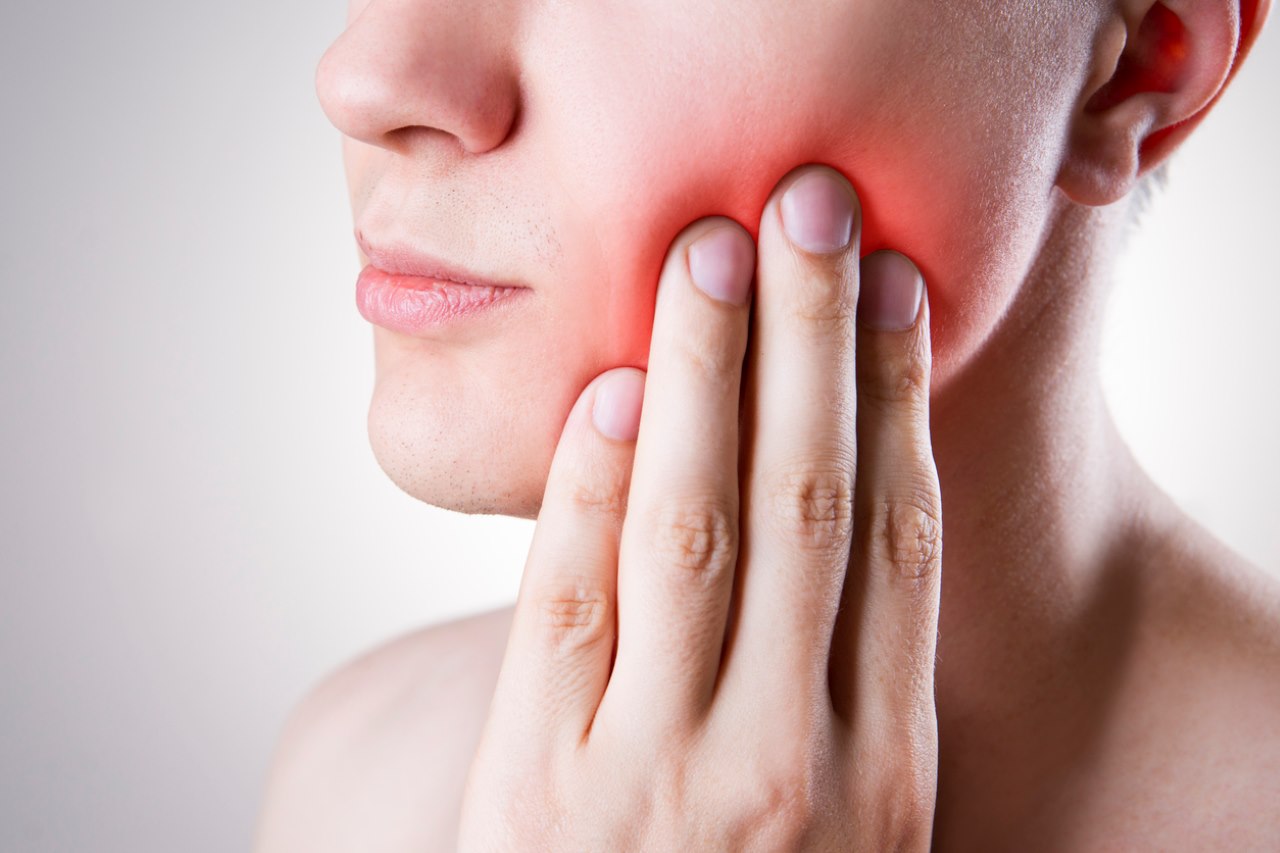Feb
26

Experiencing a toothache is uncomfortable enough without the added burden of a headache, and yet many of us often find ourselves grappling with both simultaneously. Hello, paracetamol and a day off work!
Naturally, this leads to the question: can a toothache cause a headache? The short answer is yes, but why? In the following blog, we’re going to take a look at the possible correlation between toothaches and headaches, shed some light on the causes behind this connection, and offer you some much-needed remedies for alleviating both dental and headache pain – and some tips for dealing with the dreaded combination of the two!
Let’s get started.
Toothache Symptoms
If you’re between the ages of 2 and 100, you probably already know what a toothache feels like – and if you don’t, then lucky you! Toothache will typically manifest itself in various forms, from mild discomfort to intense throbbing pain in or around the tooth, and symptoms of a toothache can include sensitivity to hot or cold temperatures, pain when chewing, swelling around a tooth, and a persistent, uncomfortable sensation that seems to radiate beyond the affected area. In some cases, you might also experience a toothache and earache together due to the proximity of nerves.
You may also experience a fever or hot and cold chills with a toothache, which typically indicate an infection. If you’re experiencing the latter symptoms, make sure to book an emergency dentist appointment as soon as possible, as dental infections can become serious if left untreated.
The severity and nature of toothache symptoms can also vary based on the underlying cause, which might range from cavities and gum disease to abscesses and impacted teeth. In some cases, problems in your jaw (such as TMJ, or temporomandibular joint disorder) as well as tension in your shoulders can also cause referred pain in the teeth. This sudden teeth discomfort might feel like a cavity or an abscess, but is actually nerve pain being misdirected and firing in your gums. The mysteries of the human body, right?
Headache Symptoms
Who amongst us hasn’t had a headache? Headaches, much like toothaches, will typically present a range of symptoms, including a persistent ache in the head, sensitivity to light or noise, and pain that can either be dull and throbbing or sharp and intense. The location of headache pain can also be different depending on the cause, affecting either one specific area, the front of the head (the classic tension headache), the temples, or the entire head.
While most headaches are caused by benign issues, you should always be wary of any sudden, extreme head pain that feels either agonising or gets worse over time. When in doubt, call 111 and speak with a professional.
Exploring the Possible Links between Toothaches and Headaches
So, what connects toothaches with headaches? It’s simple: the trigeminal nerve, one of the largest nerves in the head, is responsible for transmitting sensations from the face to the brain. Because this nerve also serves the teeth, gums, and jaw, issues in these areas can directly influence or trigger headache pain. In short, it’s a bit like a crossover episode of a TV show you never wanted to watch.
One common dental condition linked to headaches is the condition we mentioned above: temporomandibular joint disorder (TMJ). TMJ is a chronic or acute dysfunction in the jaw joint that can lead to both toothache and headache, with TMJ pain generally caused by inflammation in the jaw radiating to the gums and teeth. Similarly, tooth infections, abscesses, and even misalignment can cause discomfort that radiates to the head, manifesting as headaches.
Sometimes, the root cause of a toothache can be linked to other health conditions, which is why you might wonder, why do my teeth hurt when I have a cold?
The Importance of Dental Health

There are plenty of factors responsible for causing headaches – vision issues, loud music, and bad sleeping positions amongst them – but poor dental health can also be the root cause of head pain. This is why maintaining good dental health is key – not just for preventing tooth decay and gum disease, but also for warding off headaches.
Poor dental hygiene can lead to conditions such as cavities or infections that may not only cause toothache but also contribute to headache development. Additionally, bruxism (teeth grinding) and clenching, often related to stress or misaligned teeth, can exert excessive pressure on the jaw and teeth, triggering headaches.
Remedies and Treatment Options
So, what can you do when faced with the dreaded toothache-headache double whammy? For immediate relief, over-the-counter pain medication such as paracetamol can help alleviate both toothache and headache symptoms – but remember that you shouldn’t take any OTC medication for more than 5 days without a doctor’s guidance.
It’s also important to note that addressing the root cause of the pain is important for long-term relief, especially if you suspect you have a chronic problem or you’re experiencing ongoing discomfort or pain.
Dental Problems
If you suspect a dental problem is causing the trouble, a check-up with a London dentist can give you some much-needed answers and relief, as well as a dedicated treatment plan. Treatments may vary from fillings, root canals, or extractions for infected or decayed teeth, to mouth guards for bruxism, or orthodontic treatment for misalignments. Additionally, lifestyle changes, such as stress management techniques, may be recommended to help reduce teeth grinding and clenching.
Headaches
A mild headache that brings on tooth pain can be caused by anything from a misdirected nerve to an undiagnosed TMJ disorder, and while this is fairly common, it’s a good idea to consult with your GP if symptoms persist. However, if you experience a severe headache that you’ve never had before, or if your severe headache is accompanied by other symptoms – such as sensitivity to light, vomiting, or difficulty standing up – call 999 for urgent treatment and care.
The Bottom Line
Ultimately, while incredibly unpleasant, it’s not uncommon to experience a toothache and a headache at the same time. In most cases, the close proximity of the trigeminal nerve is to blame, and symptoms will subside in a few days, or following treatment of an ongoing dental problem. For more information, you can speak with one of our dentists at our award-winning clinic located in St Johns Wood, or book an appointment with us via our website.










